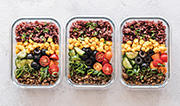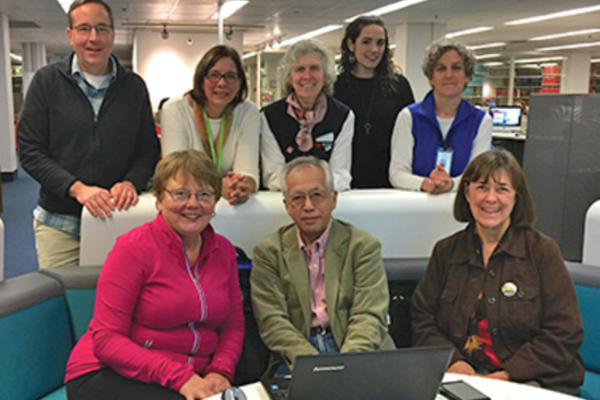Nursing science addresses America’s hunger crisis
(April 2021) News from the Center for Adolescent Nursing.
April 7, 2021
In the pandemic economy, almost 1 in 8 U.S. adults say their households don’t have enough to eat. The lockdown of 2020, with its epic lines at food banks, has revealed what was hidden in plain sight: that the struggle to put adequate meals on the table — food insecurity — is persistent for millions of families in the U.S.

Food insecurity is linked to negative health outcomes for both young people and adults, and it may cause young people to have trouble in school. Public health interventions that focus on helping everyone get healthy foods are key to reducing food insecurity and improving health. While legislative support for such interventions is growing, relatively little is known about how effective they are in reducing food insecurity and improving families’ dietary quality.
Assistant Professor Melissa Horning’s research addresses this important evidence gap. In a study published in 2021 in the journal Appetite, she and her community colleagues at the East Side Table of M Health Fairview examined the acceptability and impact of a community-developed family meal-kit program. The meal-kit program was designed to increase access and affordability of healthy foods, enhance cooking skills and improve dietary quality for residents of St. Paul’s East Side Neighborhoods. “Both qualitative and quantitative findings showing increases in cooking confidence and availability of healthy foods following the program indicate that meal-kit programs hold real promise as a public health intervention to increase healthy, home-cooked meals,” says Horning.


